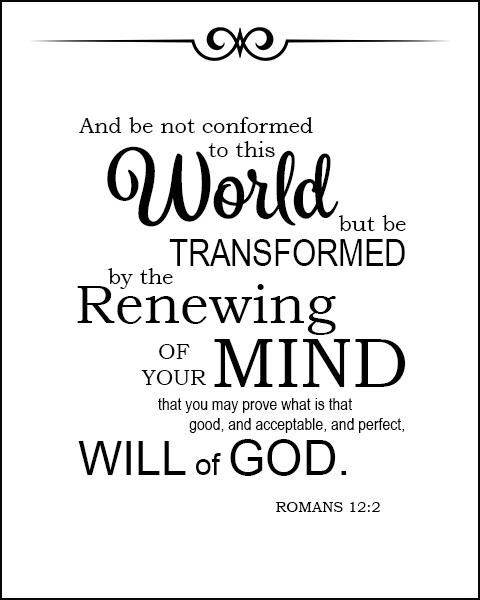World-Affirming and World-Denying: The Paradox of the Christian Life
Why is it that Christians can heartily sing, “This is my father’s world”[1] and “Is this vile world a friend to grace, to help me on to God”[2] in the same breath? Is the world our father’s or is it vile, committed to preventing us from union and communion with God?
A careful study of the Bible reveals that we are correct in singing these two hymns in the same breath. It is one of the paradoxes of the Christian life that we can affirm the world because it is God’s good creation and also deny the world because it is a fallen creation that is in rebellion against its maker.
Denying the former (that this is our father’s world) will lead us to gnostic dualism (where what is material is evil and only what is spiritual is good) or to an ascetic seperation from the world, characterised by a spiritual-secular dualism and indifference towards the world around us.
Also, denying the latter (that this vile world is no friend of grace to help us on to God) will lead to worldliness and the corruption of our soul or to adherence to the myth of progress where the goodness of anything is determined by whether it is on the “right side of history”.
Keeping this paradox is hard work but it is hard work that we must embrace to live Christian lives consistent with the Bible’s theological outlook.
World-Affirming
God created the world
We affirm the world because it is God’s good creation. Genesis 1 ends with these words: “God saw all that he had made, and it was very good. And there was evening, and there was morning – the sixth day” (Genesis 1:31).
In reference to a particular part of creation – humans – Qoheleth said that “God created mankind upright” (Ecclesiastes 7:29).
And even though the world is fallen, the heavens still declare the glory of God and the skies still proclaim the work of his hands (Psalms 19:1).
God sustains the world
Though fallen, God did not abandon the world. He is the one who sustains every single part of creation; not a single part of it exists at any moment apart from God’s preserving and sustaining grace. According to Paul, God is the one who gives us “rain from heaven and crops in their seasons” and “he provides you with plenty of food and fills your hearts with joy” (Acts 14:17).
Or as he wrote to the Colossians, it is in Christ that “all things hold together” (Colossians 1:17). The author of Hebrews agrees: it is the Son who sustains all things by his powerful word (Hebrews 1:3).
If God did not discard the world despite its fallen state how can we who are his image bearers and vice-regents over the world discard it? How can we be indifferent to what God is sustaining at every moment?
Christians affirm the world because God sustains it by his powerful word.
Every good gift comes from God
According to James, “every good and perfect gift is from above” (James 1:17). Paul puts it this way: “For everything God created is good, and nothing is to be rejected if it is received with thanksgiving, because it is consecrated by the word of God and prayer” (1 Timothy 4:4). Later on he would affirm that it is God who “provides us with everything for our enjoyment” (6:17).
Everything that is rightly enjoyable in this world is a gift of God. Even though we often pervert these gifts by our sinfulness, that perversion is not inherent to the gift. For example, sex is a gift of God but fornication, adultery, and homosexuality, among others, are sinful perversions of this gift. However, these perversions don’t undermine the fact that sex is God’s good gift. Replace sex with entertainment, work, sports, or food and the point is still the same.
As Christians who are world-affirming, we must learn to distinguish the corruptions of God’s good gifts from the gifts themselves so we don’t end up rejecting God’s gifts (and giving occassion for Satan to label God a miser) because of the ways they have been corrupted.

Natural law is God’s law
Because creation is inherently and fundamentally good, natural law – the law that we discover from the telos of the things God has created – is God’s law. When a thing acts in accordance with its essence or nature or its final cause (purpose), it is adhering to natural law. And when it does the opposite, it is disobeying natural law.[3]
In relation to humans, “the idea of natural law holds that all people, whatever their ethnicity, culture, or religion, can know the difference between good and evil, right and wrong”[4]
“Natural law, as we will see, is broadly congruent with the idea that all humans possess reasons, and that, as C.S. Lewis once wrote, ‘human beings, all over the earth, have this curious idea that they ought to behave in a certain way, and cannot really get rid of it.’”[5]
In Romans 2:15-17, Paul insists that God’s laws are written on our consciences even apart from direct revelation in the Scriptures. Therefore, apart from special revelation, it is possible to identify these laws that have been universally written in our consciences.
Natural theology is possible
In the same way, Paul affirms in Romans 1 that there are some things about God that can be known in the nature of things even apart from God’s special revelation. “For since the creation of the world God’s invisible qualities – his eternal power and divine nature – have been clearly seen, being understood from what has been made, so that people are without excuse” (Romans 1:20). As we saw earlier in Psalms 19, the heavens and skies declare the glory of God and proclaim his handwork.
In other words, “the cosmos proclaims the existence and nature of God to humans in a way that they can in fact understand”[6]
As Christians, we must be world-affirming by pursuing the knowledge of God that can be had through the world of nature.

Calling and vocation
We also affirm the world by taking our calling and vocation seriously. In Genesis 1, God gave us the creation mandate: “be fruitful and increase in number; fill the earth and subdue it” (verse 28). As believers, we must joyfully and gladly participate in this work of exercising just and righteous dominion over the earth.
This means that we don’t live a dualised life where only what is “spiritual” is godly and what is “secular” is evil at worst or a dredge that we must endure at best.
In the reformation, Luther changed the Christian world’s perspective on secular work, calling us to do every work to God’s glory because God is using our work to provide for his creation. That is, in every work we do – as a plumber, an economist, or a CEO – we are instruments in God’s hands for the sustenance of creation. Therefore, we must do our work as unto the Lord, as serving God and not man (Colossians 3:23, Ephesians 6:7).
We affirm the world when we take our “secular” vocation seriously as an arena where we are to glorify God and love our neighbour. “What seem to be secular works are actually the praise of God and represent an obedience which is well pleasing to him”[7]

The world will be renewed not discarded
God did not discard the world after the fall. Instead, his plan was to renew, redeem, and restore the world to the glory that even exceeds the original glory of the unfallen creation. Consequently, in the consummation of all things, we will dwell in a new creation (new heaven and new earth) that will be the home of righteousness, rid of all impurities.
John described the home of the redeemed as the New Jerusalem coming down from heaven to the earth (Revelation 21:1). It is the earth, albeit the new earth, that the meek and the heirs of Abraham will inherit (Matthew 5:5, Romans 4:13).
In essence, God will not destroy this fallen creation into oblivion. Rather, he will purify and redeem it and make it the home of the redeemed, a home where he himself will dwell with them (Revelation 21:3).
[For more on the nature of the new creation, read “Will The Meek Inherit The Earth?”]
“Redemption doesn’t mean scrapping what’s there and starting again from a clean slate but rather liberating what has come to be enslaved,” said N.T. Wright, a New Testament scholar. “And because of the analysis of evil not as materiality but as rebellion, the slavery of humans and of the world does not consist in embodiment, redemption from which would mean the death of the body and the consequent release of the soul or spirit. The slavery consists, rather, in sin, redemption from which must ultimately involve not just goodness of soul or spirit but a newly embodied life.”[8]
Since God is not discarding creation but renewing it, we Christians cannot treat this world as a mere hindrance on the way to the life of heaven. We can’t do this because the earth, renewed and restored, will be our eternal home. In fact, in Revelation 21:26, we read that “the glory and honour of the nations” will be brought into the New Jerusalem. There will be continuity between this earth and the next.
Therefore, we must be building here on earth in anticipation of the new earth. “People who believe in the resurrection, in God making a whole new world in which everything will be set right at last, are unstoppably motivated to work for that new world in the present,” wrote N.T Wright. “To be new-creation people here and now, bringing signs and symbols of the kingdom to birth on earth as in heaven. The resurrection of Jesus and the gift of the Spirit mean that we are called to bring real and effective signs of God’s renewed creation to birth even in the midst of the present age.”[9]
[For more on how our work on this earth can anticipate the new creation, read “The Christian and Politics: Some Reflections”]
World-Denying
The world is in rebellion against God
Though John uses “world” in various ways, one of them is to describe humanity that is in rebellion against God. In John 1:10, the world rejects Jesus, in 3:19, the world embraces darkness and rejects light, and in 7:7, the world hates Jesus. Satan is the prince of this world (John 12:31, 14:30), dragging it along in rebellion against God.
In Romans 1, we see the world rebelling against the knowledge of God and choosing to worship created things instead of the creator. Therefore, the world is characterised by sin – the lust of the flesh, the lust of the eyes, and the pride of life (1 John 2:16).
Human nature is fallen
While God’s laws are written on our hearts, human nature is so fallen that we deny, distort, and disobey these laws. This means natural law has been made so complicated by fallen human nature. And God has to reveal his moral laws to us in the Scriptures to reaffirm and clarify what we are so prone to deny and distort.
We are all in the realm of the flesh and we cannot please God (Romans 8:7-8) since we are driven by ungodly and deceitful desires (Romans 7:5, Ephesians 4:22), gratifying the cravings of our flesh (Ephesians 2:3).
Human knowledge is fallen
We have already seen that though we know that there is a God (and we know his nature), we still reject him and prefer to worship the creatures. Human knowledge is fallen and we prefer to believe what is false and reject what is true in an attempt to escape from the reality that we are not ultimate in the universe. And this makes natural theology difficult.
How did God respond to this? “For since in the wisdom of God the world through its wisdom did not know him, God was pleased through the foolishness of what was preached to save those who believe” (1 Corinthians 1:21). Since human wisdom in rebellion has rejected what is obvious and plain, God would turn our wisdom to foolishness by giving us a message of salvation that appears foolish to us in our fallen human wisdom.
Consequently, though natural theology is possible, it cannot be salvific. Salvation has to come from special revelation. “It was necessary for man’s salvation that there should be a knowledge revealed by God, besides philosophical science built up by human reason…Hence it was necessary for the salvation of man that certain truths which exceed human reason should be made known to him by divine revelation”[10]

Creation is in birth pain
Though creation is good, it is groaning in the pains of childbirth (Romans 8:22). It was subject to frustration by God’s will, which means that life in this world is characterisied by various forms of suffering (Romans 8:18).
Therefore, though the present world will be continuous with the next, it will also be discontinuous. All the sufferings and evils that characterise the present world will be gone.
A correlative point is that we must have measured expectations of what all our attempts to work for the new world in the present, to anticipate the new creation in the old, can achieve. We cannot bring about the new heaven and the new earth by our human ingenuity and our best attempts at justice and righteousness will still be frustrated by the fact that we live in a creation that is subjected to frustration itself.
As Brad Littlejohn said, “we should not expect radical transformation of the temporal order into the new Jerusalem; it can only ever hint at and witness to Christ’s reign, not incarnate it.”[11] Or NT Wright: “We must recognize, as the second view does, that the final putting to rights of everything does indeed wait for the last day. We must therefore avoid the arrogance or triumphalism of the first view, imagining that we can build the kingdom by our own efforts without the need for a further great divine act of new creation.”[12]
We must be light in a dark world
The world is in darkness. And as believers, we cannot affirm that darkness. Instead, we must be the light of the world and the salt of the earth (Matthew 5:14-17). As Paul puts it, “Do everything without grumbling or arguing, so that you may become blameless and pure, ‘children of God without fault in a warped and crooked generation.” Then you will shine among them like stars in the sky’” (Phillipians 2:14-15).
If human nature is fallen and the world is in darkness, it means what is is not always what should be. Therefore, being on the “right side of history” cannot be a moral decider for believers. The “right side of history” can be gross darkness in need of the spiritual and moral light of Christians. In essence, believers cannot go along with every ingenuity of the world because though many relatively good things come from ungodly people, many evil things can also come from them. It’s a world in darkness, after all.

We must reject the world’s standards
“I have given them your word and the world has hated them, for they are not of the world any more than I am of the world. My prayer is not that you take them out of the world but that you protect them from the evil one.”
In the world, but not of the world should be the disposition of believers. We must not be conformed to the sinful world in rebellion against God (Romans 12:2); we must not be unequally yoked with unbelievers (2 Corinthians 6:14-17). The grace of God must teach us to say “No!” to worldly passions (Titus 2:12). True religion requires that we be unspotted from the world (James 1:27), refusing any sort of friendship with the world (James 4:4).
In essence, we must reject worldly (anti-God) knowledge, worldly moral standards, utopianism, idolatry, and everything in which the world opposes God and corrupts the soul of the believer. As John said, “Do not love the world or anything in the world. If anyone loves the world, love for the Father is not in them. For everything in the world—the lust of the flesh, the lust of the eyes, and the pride of life—comes not from the Father but from the world” (1 John 2:15-16).
This means there are many things in this world that we have to say “No!” to because of our love for God and neighbour. Even though God has given us manifold good gifts, we must say no to those that have been corrupted and perverted. That is, self-denial will always be a constant feature of the Christian life (1 Corinthians 9:27)
Conclusion
As God’s creation, sustained by his power and destined for the consummation of its redemption, we must affirm the world. We do this by enjoying God’s good gifts (and thanking him for them), affirming natural law and natural theology, and doing our work in this world (“spiritual” and “secular”) to the glory of God as his agents of provision, and anticipating the new creation in the old.
As fallen creation, which is in birth pain and consists of human beings with fallen nature and fallen knowledge, we must deny the world. We do this recognising that the world is in darkness as a result of rebellion against God. Therefore, we must reject the world’s darkness, shine as lights amidst the darkness, reject the world’s anti-God knowledge and moral standards, shun all utopianism, and constantly see the world as in need of God’s redemptive grace in the present and in the future.
This is my Father’s world,
and to my list’ning ears,
all nature sings, and round me rings
the music of the spheres.
This is my Father’s world:
I rest me in the thought
of rocks and trees, of skies and seas;
his hand the wonders wrought.
This is my Father’s world,
the birds their carols raise,
the morning light, the lily white,
declare their Maker’s praise.
This is my Father’s world:
he shines in all that’s fair;
in the rustling grass I hear him pass,
he speaks to me ev’rywhere.
This is my Father’s world,
O let me ne’er forget
that though the wrong seems oft so strong,
God is the Ruler yet.
This is my Father’s world:
the battle is not done;
Jesus who died shall be satisfied,
and earth and heav’n be one.
Am I a soldier of the cross,
a foll’wer of the Lamb,
and shall I fear to own his cause,
or blush to speak his name?
Must I be carried to the skies
on flow’ry beds of ease,
while others fought to win the prize,
and sailed thro’ bloody seas?
Are there no foes for me to face?
Must I not stem the flood?
Is this vile world a friend to grace,
to help me on to God?
Since I must fight if I would reign:
increase my courage, Lord;
I’ll bear the toil, endure the pain,
supported by thy Word.
Thy saints, in all this glorious war,
shall conquer, though they die;
they view the triumph from afar,
and seize it with their eye.
When that illustrious day shall rise,
and all thine armies shine
in robes of vict’ry through the skies,
the glory shall be thine.
Footnotes
[1] Maltbie D. Babcock. This is My Father’s World in Trinity Psalter Hymnal (Willow Grove: Trinity Psalter Hymnal Joint Venture, 2018), 252.
[2] Isaac Watts. Am I a Soldier of the Cross in Trinity Psalter Hymnal? (Willow Grove: Trinity Psalter Hymnal Joint Venture, 2018), 539.
[3] See Chapter 4 of Edward Feser, The Last Superstition: A Refutation of the New Atheism (Indiana: St. Augustine’s Press, 2008).
[4] Samuel Gregg, The Essential Natural Law (Vancouver: Fraser Institute, 2021), Page 8.
[5] Ibid.
[6] David Haines, Natural Theology: A Biblical and Historical Introduction and Defense (North Carolina: The Davenant Press, 2021), Page 18.
[7] Martin Luther, cited in Michael Reeves and Tim Chester, Why the Reformation Still Matters (London: InterVarsity Press, 2016), 198.
[8] N.T Wright, Surprised by Hope (London: HarperCollins Publishers Ltd., 2008), 133, Scribd.
[9] Ibid, 280.
[10] Thomas Aquinas, cited in Haines, Natural Theology, Page 134.
[11] Brad Littlejohn, The Two Kingdoms: A Guide for the Perplexed (Landrum: The Davenant Trust, 2017), 117, PDF.
[12] Wright, Surprised by Hope, 290.



